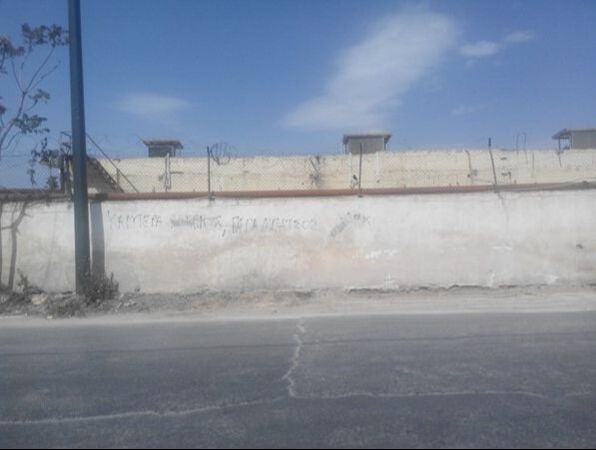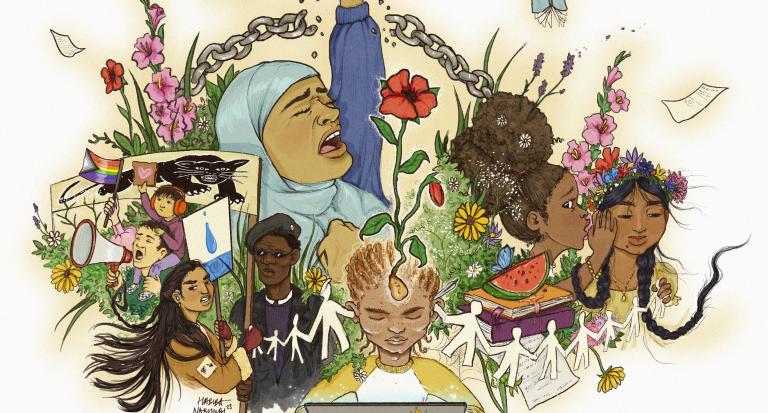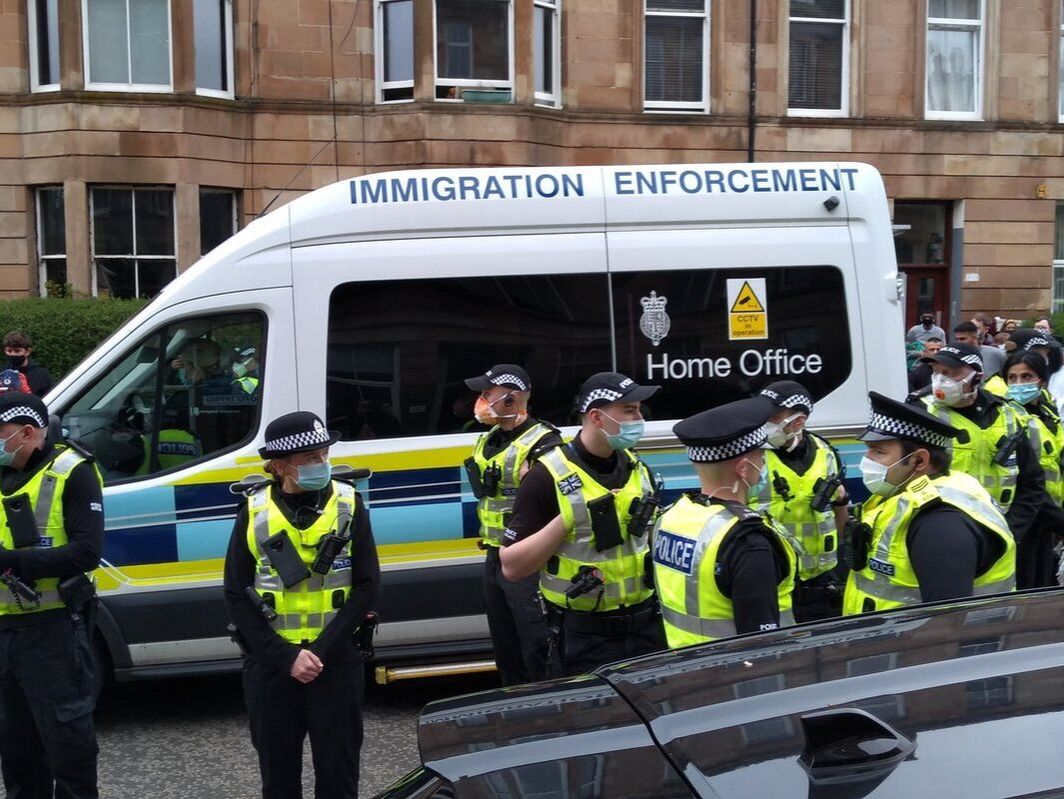|
|
|
Blog post by Aino Korvensyrjä, University of Helsinki
In the first week of May 2018, there was some moral panic in the German media. National and regional media reported on a ‘mob’ of 150–200 black Africans violently stopping deportation and attacking the enforcement patrol in a reception centre for asylum seekers in Ellwangen, Baden-Württemberg. After the 2015 ‘Summer of Migration’, when popular sympathies for refugee-migrants had peaked in Germany, such narratives of dangerous black and brown refugee-migrant men were a standard feature in the German media and public debate. This continuous panic created public acceptance of deportations of asylum seekers and the increasingly ruthless control policies at external EU borders. My Identities article, ‘Criminalizing black solidarity: Dublin deportations, raids, and racial statecraft in southern Germany’, looks beyond the media and policy debate on ‘Ellwangen’. It examines how the police and courts managed local conflicts over deportation during an intense campaign to increase so-called Dublin deportations. These are deportations to the first country of entry in Europe. For the authorities, a fingerprint registered into the EURODAC database by another European country is enough to begin the deportation proceedings. West Africans were then a key target group of Dublin deportations, and Italy was the main country of destination. The article draws attention to a series of police raids targeting West African migrants living in southern German asylum camps in 2018, including the above-mentioned raid in Ellwangen. In all cases, police accused West African men of rioting against deportation enforcement to Italy, and local courts prosecuted numerous individuals. My article explores how the police and local courts thus suppressed anti-deportation protests and how their practices produced race.
0 Comments
Blog post by Katerina Rozakou, Panteion University of Social and Political Sciences, Greece
During my research in Greece, which forms the basis of my Identities article, ‘Ambivalent feelings: ‘filotimo’ in the Greek migration regime’, I explored ambivalent feelings that police officers demonstrate in their encounters with migrants in various sites of migration governance. Between autumn 2014 and summer 2016 I did fieldwork with state and non-state actors involved in migration in registration, pre-removal migrant detention, and open reception centres in Athens and Lesvos. Police officers in Greece are notorious for their anti-migrant and racist attitudes, and migration governance sites are infamous for their poor conditions as numerous reports by human rights organizations illustrate (Amnesty International 2014, European Committee for the Prevention of Torture and Inhuman or Degrading Treatment or Punishment 2017, Greek Ombudsman 2019). At the same time, often police officers exhibit care towards migrants, providing them with medicine, food and other goods. This care is not a matter of individual exceptions in the dominant xenophobic police feelings but related to the culturally significant sentiment of ‘filotimo’ (love of honour) that police officers evoke. The ‘goodness’ and the acts of care that police officers exhibited towards migrants them as more than mere individual exceptions in an overall culture of neglect and dehumanization (though at times this may be the case). As I claim, this care very often coexisted with violence and xenophobia, and it resonated with nativist claims to morality and moral superiority that were contrasted to the demoralization of the state the police officers embodied.
Gaza, Solidarity and the Right to Protest Blog Series, Guest Edited by Alana Lentin and colleagues
Blog post by Shereen Fernandez and Waqas Tufail Shereen Fernandez is an LSE Fellow in the Department of Sociology at the London School of Economics and Political Science. Waqas Tufail is a Reader in Criminology in the School of Social Sciences at Leeds Beckett University. The current wave of international solidarity with Palestine has faced significant backlash in Western nations primarily from politicians and media outlets, but also from within institutions. In the United States, for instance, there are countless reports of individuals being fired from their jobs for publicly expressing sentiments of solidarity with Palestinians and particularly those under siege in Gaza. On US college campuses, doxxing of students expressing sympathy towards Palestinians using billboards attached to trucks has been employed as a technique to publicly name and shame individuals. One purpose of such tactics is to inform future employers not to hire these students but more chillingly it is a strategy used to dissuade and silence others from taking such principled action. This silencing can often be violent, as demonstrated by the recent shooting of three Palestinian male students in Vermont, who were allegedly targeted for wearing keffiyehs.
Blog post by Aaron Winter, Lancaster University, and Co-Editor, Identities: Global Studies in Culture and Power. Cross-posted from British International Studies Association Voices from BoisMitidja.
This piece is based on my intervention at the British International Studies Association (BISA) Colonial, Postcolonial and Decolonial (CPD) event ‘Refusing Carcerality - A Public Roundtable’ at King’s College London on 14 June 2023. It was a great event and opportunity to hear other interventions, reflect on issues, and bring together some issues and ideas I have had working in Criminology and on counterextremism, counterterrorism and the far right in relation to important discussions about carcerality and abolition. Carcerality always extends beyond what are typically seen as carceral institutions, policies and punishments, particularly in the context of abolitionist theory and activism and our understanding of the carceral state and society. I would like to return it to the prison and penal system for a moment though to discuss how differences and alternatives to the carceral are constructed, used and played off one another in the context of counterextremism, counterterrorism and Criminology in ways that can distract from and ultimately serve an unequal and unjust system. This is particularly important if our opposition to the carceral is also about opposing this system, focusing on systemic inequalities and injustices (related to but expanding beyond ‘crime’) and envisioning more radical and truly emancipatory alternatives.
A recent Policy Exchange report made waves in criminological circles, (mis)identifying drill music and ‘gangs’ as prime suspects in connection with knife crime, while also defending more stop and search – despite the report’s own criticisms of it. Unsurprisingly, this ill-thought, badly researched and politically dubious intervention inspired a fierce rebuttal from 49 experts in Criminology, youth justice and rap music. In support of the criticism that this report has already drawn, we write to further expose various factual errors and wild claims contained in it – out of concern for its potential to mislead the public and misrepresent the people and communities that are worse affected by such irresponsible punditry. This is important not just as an exercise of setting the record straight, but as an indication of the dangerous precedent that such inflammatory policy entrepreneurship sets for social justice. In the context of draconian new police powers that this report validates, we consider the threat that the criminalisation of public life poses on human rights, civil liberties and factual accuracy too. While we concentrate on the Police Exchange report itself to reveal only some of its many failures, we also illustrate what is at stake when evidence-less, ideologically-driven policy is written into law and what that means for democracies that behave in disturbingly authoritarian ways.
I’d just handed the baby over to my partner after the breakfast shift last Thursday morning when a friend messaged me. Activists had tweeted that an immigration enforcement raid on Kenmure Street in Pollokshields was being blocked by local people. My friend lives on the other side of town, but I live round the corner. ‘On way’, I replied. I pulled some trainers onto my bare feet, told my partner what was happening, and left the house.
The van was parked in front of another friend’s flat. 'IMMIGRATION ENFORCEMENT', with the targets of the raid inside. Ringed by police officers facing out, surrounded by protestors facing in. (I didn’t know until later that someone was lying under the van to stop it moving.) My friend was there at the front, face mask on, talking sharply to the police. His partner, nine months pregnant and with the home birth team on call, came out later with their two-year-old. Not that the home birth team would have been able to get through: police vehicles already blocked the street in both directions, up and down the block. I took a picture of the immigration enforcement van and the ring of police, and tweeted it. People on Twitter immediately noticed the black-and-white union jack with a ‘thin blue line’ down the middle that one of the officers was wearing. |
|
Explore Identities at tandfonline.com/GIDE |
|
The views and opinions expressed on The Identities Blog are solely those of the original blog post authors, and not of the journal, Taylor & Francis Group or the University of Glasgow.






